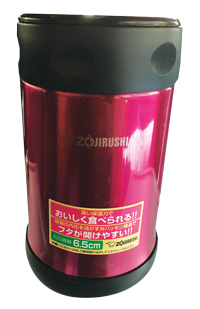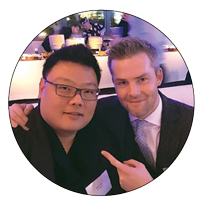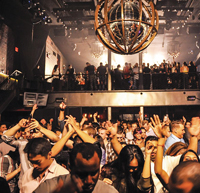Jason Lee is the founder of Six Sigma NYC, a Manhattan-based development and construction firm with four active NYC projects that have a total projected sellout of $300 million. The company’s biggest project to date is a 61-unit under-construction condo on 29th Street near the High Line. But the firm generally develops boutique condos with only a handful of pricey apartments, including the four-unit 56 Walker Street in Tribeca. The 5,000-square-foot ground-floor condo there is currently listed for $12.9 million. Lee, 38, was born in Korea and lived in Hong Kong until he was 10 before moving to Long Island. After graduating from Boston College in 1999, he worked in sales for a computer supplies company, which counted Victoria’s Secret as a client. Lee befriended the lingerie giant’s facilities manager, who taught him the contracting business. In the next two years, he went from painting one of the retailer’s corporate offices as a side gig to handling a significant amount of the company’s contracting work and launching his own construction company, J-Tek, which in 2007 took on its first project as a developer. Two years later, Lee formed Six Sigma. In addition, “Million Dollar Listing New York” star and Nest Seekers International broker Ryan Serhant handles all of Six Sigma’s apartment sales. Lee recently appeared on “MDLNY” in a storyline involving 56 Walker.
9 a.m. I wake up in a Midtown East co-op on East 57th Street and answer emails and text messages. My day starts later than most people’s, but it also ends a lot later. I prefer texts over phone calls because my 1-year-old son, Ethan, is usually crying.
9:30 a.m. I play with Ethan before heading out. It’s a requirement from my wife. She spends the day with him, taking him to music lessons and the park. Also, I don’t eat breakfast. I’ve been told that’s why I’m so fat. They say you’re supposed to have a big breakfast and a small dinner. I do the opposite.
10:30 a.m. Over the next six hours, I get driven in a Mercedes to each of our active job sites. I used to drive myself, but I kept getting traffic tickets. In New York tickets are like $115 a pop, so my CFO forced me to get a driver. I go into the office once a week, if that. Mostly, I work from the back of the car. Give me a computer, phone and a hotspot and I’m good.
 11 a.m. I start the day at 435 West 19th Street, which should be complete by late 2017. I walk through the site and talk to my project manager and the foreman.
11 a.m. I start the day at 435 West 19th Street, which should be complete by late 2017. I walk through the site and talk to my project manager and the foreman.
12 p.m. I check in at our West 29th Street project, where we’re doing small one-bedrooms in a big building. I like doing smaller projects, but the market is asking for smaller units. And to do smaller units in a small building is impossible. There’s too much waste with hallways and egress. That leads you to build a large building to make it efficient.
1 p.m. I eat lunch in the car. My wife packs me a flask of chicken soup or tomato soup in a thermos. During construction hours, I’m pretty busy. I have a lot of dinner meetings instead of lunch meetings because that’s when the construction sites are closed.
1:30 p.m. I make two or three visits a week to potential development sites. Our underwriting has gotten a lot more conservative, so we’re really looking carefully. Prices are way high and it’s hard to find the right land. We’re looking at Flushing in Queens, the Upper East Side, Upper West Side, Murray Hill and Chelsea.

Lee with broker and MDLNY star Ryan Serhant
3 p.m. The four-unit project at 56 Walker is my last construction stop of the day. I was a computer science major, so I always put some crazy techie stuff into the apartments. In this building, the lights are iPad-controlled and the speakers and TV are motorized. If you’re in the kitchen and want to watch the TV in the living room, it will move away from the wall and turn toward you. We also make design changes on the fly. We decided to motorize all the windows, including the floor-to-ceiling ones. One day I was trying to open the window to get some air and it was just really hard. Nothing existed on the market. With off-the-shelf materials, I designed the windows with sensors to detect if someone’s hand is out the window or if it’s raining.
4:30 p.m. Sometimes I’ll drop into Ryan Serhant’s office unannounced. I’ll prod him to make sure he’s working on our stuff.
7 p.m. I go home to have dinner with my family. My wife mainly cooks Korean food, but we also go out often to restaurants like Sushi of Gari or Sushi Seki.
8 p.m. After my son goes to sleep, it’s either time for conference calls with Asian investors or salespeople — or dinner appointments with current or potential investors. Sometimes, I end up eating two dinners. Most of our investors are from Korea, China, Singapore and Malaysia. We have an investor in town at least once a month.

Lee spends many late nights clubbing with clients.
12 a.m. A lot of investors, bankers, brokers and subcontractors I work with like to go clubbing. Two or three nights a week, I’m in a club until 2 a.m. or later. If an investor is having the time of his life and doesn’t want to go home, it’s hard to leave him there. Marquee and Lavo are the two main places we go to. If we’re looking for more of a lounge, we’ll go to Vandal. We’re on the dance floor — and we have no shame. I enjoy spending time in clubs with people we look to do business with. It’s a great way to see who they really are. It seems to create a much tighter bond very quickly. I like to work with friends. The goal is to have the business relationships be more like friendships.
2 a.m. I take a cab or Uber home. If I’m hungry, I may stop at a Halal place — or Koreatown for a nightcap meal, which adds to my stomach.
2:30 a.m. I have trouble falling asleep at night, so I go to sleep with the TV on — something really quiet like the Discovery or Smithsonian channels.
